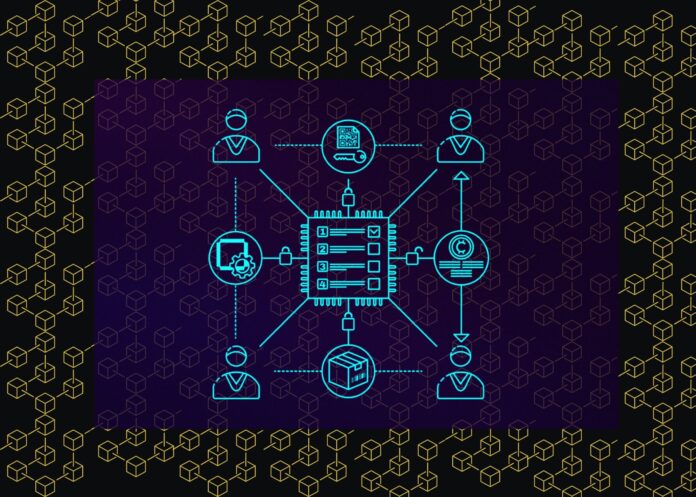The decentralized finance (DeFi) ecosystem has experienced rapid growth in recent years, offering innovative financial services built on blockchain technology. However, it’s not without DeFi security challenges.
Smart contracts are self-executing code that facilitates and enforces the terms of agreements without intermediaries.
However, the security of these smart contracts has become a critical concern, with numerous vulnerabilities posing significant risks to users and platforms.
The importance of DeFi security cannot be overstated. Smart contracts handle vast digital assets – even minor vulnerabilities can lead to catastrophic losses.
Ensuring the integrity and reliability of these contracts is crucial for maintaining trust and driving further adoption of DeFi applications.
This article will explore common smart contract vulnerabilities, security measures, and best practices for addressing these challenges.
Common Smart Contract Vulnerabilities
Although smart contracts offer numerous benefits, their complexity and immutable nature make them susceptible to various vulnerabilities. Understanding these vulnerabilities is essential for developing robust and secure DeFi applications.
Reentrancy attacks
Reentrancy attacks occur when a malicious contract repeatedly calls a vulnerable contract before the first invocation has completed, allowing the attacker to drain funds or manipulate the contract’s state.
The infamous DAO hack in 2016, which resulted in the loss of millions of dollars, was a high-profile example of a reentrancy attack.
Access control issues
Access control vulnerabilities arise when smart contracts fail to restrict access to sensitive functions or data properly.
Poorly implemented access control mechanisms can allow unauthorized parties to execute privileged operations, compromising the integrity of the contract.
Arithmetic over/underflows
Arithmetic over/underflows occur when numeric operations result in values exceeding maximum or minimum representable values, leading to unexpected behavior or unintended consequences. These vulnerabilities can be exploited to manipulate contract states or steal funds.
Timestamp dependencies
Smart contracts that rely heavily on blockchain timestamps can be vulnerable to timestamp manipulation attacks.
Miners or other parties with sufficient resources may be able to influence the timestamp of a block, potentially disrupting time-sensitive operations or enabling exploitation.
Insecure code practices
Poor coding practices, such as unchecked external calls, uninitialized storage pointers, and improper input validation, can introduce vulnerabilities that compromise the security and reliability of smart contracts.
Security Measures and Best Practices
Addressing smart contract vulnerabilities requires a multi-faceted approach that combines secure coding practices, DeFi security solutions, and user education.
Secure coding practices
Code audits and testing
Rigorous code audits and comprehensive testing are essential for identifying and mitigating vulnerabilities in smart contracts.
Manual code reviews, automated testing tools, and penetration testing can help uncover potential issues before deploying contracts to live environments.
Formal verification
Formal verification techniques, such as model checking and theorem proving, can provide mathematical guarantees about the correctness and security of smart contracts.
Although resource-intensive, formal verification can significantly reduce the risk of vulnerabilities and increase confidence in the contract’s behavior.
Bug bounty programs
Bug bounty programs incentivize security researchers and ethical hackers to identify and report vulnerabilities in smart contracts and DeFi platforms.
These programs can help uncover previously unknown vulnerabilities and promote a collaborative approach to security.
Decentralized security solutions
Security platforms
Decentralized security platforms leverage blockchain technology and decentralized architectures to provide security services, such as real-time monitoring, incident response, and threat intelligence sharing.
These platforms can help DeFi projects and users stay informed about emerging threats and vulnerabilities.
Smart contract security tooling
A growing ecosystem of security tools and frameworks is emerging to support secure smart contract development.
These tools include static analysis tools for detecting vulnerabilities, runtime monitoring solutions, and secure development frameworks that promote best practices and reduce the likelihood of introducing vulnerabilities.
User education and awareness
While technical measures are crucial, user education and awareness also play a vital role in DeFi security.
Educating users about the risks associated with smart contracts, best practices for securely interacting with DeFi applications, and the importance of due diligence can help mitigate the impact of vulnerabilities and prevent exploitation.
Future of DeFi Security
The rapid evolution of the DeFi ecosystem presents ongoing challenges and opportunities for improving security.
Ongoing research and development
Continuous research and development efforts are underway to advance smart contract security and develop new vulnerability detection, mitigation, and prevention techniques.
Collaborations between academia, industry, and the open-source community are essential for driving innovation and addressing emerging threats.
Regulatory frameworks and industry standards
As the DeFi space matures, regulatory frameworks and industry standards will likely emerge to establish best practices, guidelines, and accountability measures for smart contract security. These efforts can help foster trust and encourage wider adoption of DeFi applications.
Collaboration and knowledge sharing
Fostering a culture of collaboration and knowledge sharing within the DeFi community is crucial for addressing security challenges.
Open communication channels, knowledge-sharing platforms, and cross-project collaborations can accelerate the dissemination of security best practices and enable collective efforts to combat vulnerabilities.
Conclusion
The security of smart contracts is a major concern in the DeFi ecosystem. The vulnerabilities can have severe consequences for users and platforms.
Hence, by implementing secure coding practices, utilizing decentralized security solutions, and promoting user education and awareness, the DeFi community can proactively address smart contract vulnerabilities and build a more secure and resilient ecosystem.
Therefore, ongoing research, regulatory efforts, and industry-wide collaboration are essential for staying ahead of emerging threats. It is important to prioritize security and embrace robust security measures.
In this way, the DeFi ecosystem can unlock its full potential and drive widespread adoption of decentralized financial services.



